From midnight chats at noodle stalls to opening his embassy’s grounds to all Indonesians in Thailand, HE Lutfi Rauf puts a real emphasis on fostering community spirit
| NEXT to Pantip Plaza on Petchburi road, a short distance from Siam Paragon, sits a large compound boasting a soccer field, tennis court, indoor sports hall, swimming pool, a large pond teeming with fish, and other facilities normally associated with a luxury holiday resort. Welcome to the Indonesian embassy. This vast compound, open to all Indonesian citizens, also encompasses several buildings, including the official residence of His Excellency Lutfi Rauf, Indonesian ambassador to the Kingdom of Thailand. Well maintained and in magnificent condition, the house is elegantly furnished and decorated with many photographs showing the ambassador with Thai and foreign dignitaries, including US President Barack Obama. |
The images provide a quick glimpse into the highlights of Mr Rauf’s lengthy career, which, prior to him taking on his role in Thailand, included a position as Director General for Protocol and Consular Affairs of the Indonesian Ministry of Foreign Affairs (MFA), as well as Chief of State Protocol at the Presidential Palace in Jakarta.
“Both positions obliged me to take a close look at various issues regarding Indonesian nationals, firms and organizations abroad,” said the ambassador. “At the same time, I was also responsible for arranging all presidential visits and meetings.”
From 2004-2006, Mr Rauf was Director of information and media services at the MFA in Jakarta, a role which allowed him to gain a lot of experience working and dealing with the media.
Seen speaking to guests at diplomatic events, Mr Rauf comes across as friendly, humble, and intelligent – key character traits of a successful ambassador – and this is exactly what we experienced when we met him to conduct this interview; the ambassador was articulate and entertaining throughout our entire lengthy visit.
Following a good example
Mr Rauf’s upbringing explains a lot about his character, and success.
“I was born in South Sulawesi, quite far from Jakarta,” he said. “It takes about two hours to fly from Jakarta to Makassar, the capital of South Sulawesi Province. Then you have to continue by road for five hours to reach Watan Soppeng, my home town. I was raised in a humble family. My father was a teacher at a primary school and my mother was a simple housewife. My family was a big one − I have seven brothers and one sister who passed away when she was young.
“My father worked hard to support us. He owned a small plot of land which he cultivated after finishing work at the school. We were quite self-sufficient in the countryside.
“My parents emphasized the importance of education, and thanks to God, all seven of us were able to complete university. Today, we are all engaged in different things, in public service or the private sector. I am the only one working for the MFA. My brothers and I have always tried to do our best because we realize how difficult it was for our parents to provide so well for us. We work so as not to abuse their sacrifice.
“After completing secondary education in my home town, I continued my studies at Hassanuddin University in Makassar. To help support myself I worked as a driver, but I was careful not to let my studies suffer. I studied hard and passed all my subjects. I believe that if we work with full sincerity and good faith, it will result in good things. Focusing on rewards is not important; they will come later.
“After I finished university in late 1985, I was lucky because right at that time an order came from the foreign minister to recruit new graduates directly from universities all over Indonesia. The MFA sent officials to universities, and I was one of the lucky ones who passed the examination. I joined the MFA in 1986, and following a training course became a career diplomat. I have held many assignments in Indonesia and abroad.
“I have served as ambassador to the Kingdom of Thailand since January 24, 2012. But actually I first entered this residence in 1987 during an ASEAN meeting in Bangkok. I was a part of the Indonesian delegation and it was my first flight and first mission abroad. I never imagined then that I would be living in this residence as the ambassador. It is really extraordinary.
“This is my second ambassadorial assignment. The first was to the Slovak Republic in 2006. It came as a surprise because I never realized my government had such faith in me. I was playing tennis in the morning when my secretary general called and informed me of the appointment. This was a very big step for me. At that time I was the director for information and media services, and I still have many friends in the media.
“Still in the middle of my term as the ambassador to the Slovak Republic, I was recalled to Jakarta to receive another promotion. This also came as a surprise. I woke up my children and told them to start packing. We have trained them to accept change quickly and they have always managed to adjust very well.”
“Both positions obliged me to take a close look at various issues regarding Indonesian nationals, firms and organizations abroad,” said the ambassador. “At the same time, I was also responsible for arranging all presidential visits and meetings.”
From 2004-2006, Mr Rauf was Director of information and media services at the MFA in Jakarta, a role which allowed him to gain a lot of experience working and dealing with the media.
Seen speaking to guests at diplomatic events, Mr Rauf comes across as friendly, humble, and intelligent – key character traits of a successful ambassador – and this is exactly what we experienced when we met him to conduct this interview; the ambassador was articulate and entertaining throughout our entire lengthy visit.
Following a good example
Mr Rauf’s upbringing explains a lot about his character, and success.
“I was born in South Sulawesi, quite far from Jakarta,” he said. “It takes about two hours to fly from Jakarta to Makassar, the capital of South Sulawesi Province. Then you have to continue by road for five hours to reach Watan Soppeng, my home town. I was raised in a humble family. My father was a teacher at a primary school and my mother was a simple housewife. My family was a big one − I have seven brothers and one sister who passed away when she was young.
“My father worked hard to support us. He owned a small plot of land which he cultivated after finishing work at the school. We were quite self-sufficient in the countryside.
“My parents emphasized the importance of education, and thanks to God, all seven of us were able to complete university. Today, we are all engaged in different things, in public service or the private sector. I am the only one working for the MFA. My brothers and I have always tried to do our best because we realize how difficult it was for our parents to provide so well for us. We work so as not to abuse their sacrifice.
“After completing secondary education in my home town, I continued my studies at Hassanuddin University in Makassar. To help support myself I worked as a driver, but I was careful not to let my studies suffer. I studied hard and passed all my subjects. I believe that if we work with full sincerity and good faith, it will result in good things. Focusing on rewards is not important; they will come later.
“After I finished university in late 1985, I was lucky because right at that time an order came from the foreign minister to recruit new graduates directly from universities all over Indonesia. The MFA sent officials to universities, and I was one of the lucky ones who passed the examination. I joined the MFA in 1986, and following a training course became a career diplomat. I have held many assignments in Indonesia and abroad.
“I have served as ambassador to the Kingdom of Thailand since January 24, 2012. But actually I first entered this residence in 1987 during an ASEAN meeting in Bangkok. I was a part of the Indonesian delegation and it was my first flight and first mission abroad. I never imagined then that I would be living in this residence as the ambassador. It is really extraordinary.
“This is my second ambassadorial assignment. The first was to the Slovak Republic in 2006. It came as a surprise because I never realized my government had such faith in me. I was playing tennis in the morning when my secretary general called and informed me of the appointment. This was a very big step for me. At that time I was the director for information and media services, and I still have many friends in the media.
“Still in the middle of my term as the ambassador to the Slovak Republic, I was recalled to Jakarta to receive another promotion. This also came as a surprise. I woke up my children and told them to start packing. We have trained them to accept change quickly and they have always managed to adjust very well.”
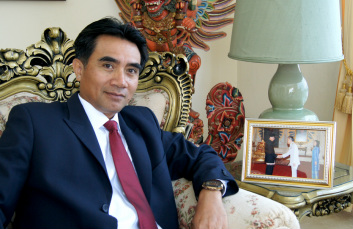
Ambassador’s routine
“Our basic duties here are representing, negotiating, protecting, promoting and reporting on behalf of the Indonesian people. In other words, the embassy is the ‘eyes and ears’ of the Indonesian nation in Thailand.
“My schedule is full. In the morning, I open the lines of communication, like reading and sending emails, and reading local, international and Indonesian newspapers so that I am well informed. There are a lot of reports to prepare, meetings to attend…the standard work of a diplomat. I enjoy golf, so meetings sometimes revolve around a game at one of the many fine courses around Bangkok. I like to exercise when I have the time. As you have seen, we are fortunate to have many facilities in our compound.
“If I am in Bangkok, I always attend diplomatic receptions or functions hosted by the Thai government or private sector. It’s very important to have relaxing conversations and make new friends.”
“Since I arrived here I have met with so many people from all walks of life, and I’ve visited almost all the provinces of Thailand − Mukdahan, Khon Kaen, Nakhon Phanom in the north, Surat Thani, Nakhon Si Thammarat, Phuket and Songkhla in the south, where we have some projects. We have a consulate in Hatyai because many Indonesians visit this part of Thailand.
“I try to get to know the people, to hear about their views and aspirations. Everywhere I go I visit local markets, eat food at roadside stalls…that’s what I like. Since I can’t speak Thai, I try my best to study and master the basic Thai language. I enjoy it very much. As a diplomat representing my country here, I feel a need to explore Thailand.
“I visit universities throughout Thailand that our government has programs with. We have student exchange programs, and every year we offer a lot of scholarships for Thai students to come to Indonesia to study our culture, language and so on. Many Indonesian students also study in different universities in Thailand, including around 400 post-graduate students.”
Building bilateral bridges
“I feel very fortunate and honored to serve my country in the Kingdom of Thailand, with which we have had such strong relations for many centuries. It is my duty and responsibility to do my best to deepen the relationship. This is the great challenge ahead, and will be done not only through enforcing government institutions. We have to involve all stakeholders and people with different perspectives − academics, artists, students, politicians, members of parliament, the private sector and so on – from both countries.
“Indonesia is the largest and most populous country in Southeast Asia, and so diverse − we have almost 250 million people living in the largest archipelagic country which has more than 17,000 islands, consisting of around 284 ethnicities and using about 600 dialects. But thanks to God, we manage to live in harmony. Of course, it is not always easy. We have been a united republic for 67 years and we have survived many domestic difficulties. We have had the faith to overcome obstacles and maintain our unity, and we will continue to do so.
“It is very important for Indonesians that we cooperate within ASEAN. We are a family and we have to help each other, not only in good times but also in difficult ones, and I think the ASEAN community is already doing this. There are so many examples when ASEAN and Thailand have helped Indonesia and vice versa. We have to maintain this kind of spirit of brotherhood, friendship and cooperation.
“We must not forget,” Mr Rauf said, “that relations between our two peoples go back to the 12th century. Cultural similarities are clear evidence of this close relationship. Indonesian traders and sailors in the past have played an important role in cementing the cordial relations between our two countries.
“The Indonesian Representative Office was initially established in Bangkok in 1947 on a small Soi in the Silom district. During the revolution period in Indonesia the building functioned as the headquarters of our people’s struggle. On December 27, 1949, about 1,000 Indonesians gathered at the building to welcome the formal transfer of sovereignty from the Netherlands to Indonesia. The office was upgraded to embassy status and we moved a short distance to Silom Road.
“In 1952 we appointed the first Indonesian ambassador to the Kingdom of Thailand, and in the same year we moved to our current location on Petchburi Road. The property belongs to us, and also includes the Sekolah Indonesia Bangkok (Indonesian School in Bangkok) for the children of the Indonesian community living in Bangkok.
“Some buildings in our compound, including my residence, have historic value, and are examples of the good workmanship by Thai people. We have only done small renovations. The main parts of the buildings remain the same, including the wood. We feel fortunate to have this embassy and we are committed to preserving it. I am planting many trees inside the embassy compound.
“This is one of Indonesia’s biggest diplomatic missions abroad with about 70 staff, both Indonesian and Thai. Currently we have 21 career diplomats and some technical attaches. I am the only one living in the compound of the embassy. The embassy is also supported by over 50 staff, both Indonesian and Thai nationals.
“The embassy is close to the Thai Ministry of Foreign Affairs, which makes it handy. I know many people at the Thai MFA and they are all professionals and very accessible. This is something all of us in the diplomatic community really appreciate.
“My policy is to open the gates for all Indonesian citizens, but they are subject to security checks just like everyone else. I tell my security people to do the checks without undermining the comfort of people, as it is my assumption that everyone comes here in good faith. We have a small mosque here and we organize Friday prayer which is quite well known among Muslims. At the end of the fasting month or Ramadan, we have Idul Fitri morning prayer on the soccer field because the mosque is too small. Normally on this special day Indonesians from all over Thailand come to the embassy.”
“Thailand opened a brand new embassy in Jakarta last November. It was opened by Her Royal Highness Princess Maha Chakri Sirindhorn. It is a very large embassy located in a prime location,” said Mr Rauf.
“Our basic duties here are representing, negotiating, protecting, promoting and reporting on behalf of the Indonesian people. In other words, the embassy is the ‘eyes and ears’ of the Indonesian nation in Thailand.
“My schedule is full. In the morning, I open the lines of communication, like reading and sending emails, and reading local, international and Indonesian newspapers so that I am well informed. There are a lot of reports to prepare, meetings to attend…the standard work of a diplomat. I enjoy golf, so meetings sometimes revolve around a game at one of the many fine courses around Bangkok. I like to exercise when I have the time. As you have seen, we are fortunate to have many facilities in our compound.
“If I am in Bangkok, I always attend diplomatic receptions or functions hosted by the Thai government or private sector. It’s very important to have relaxing conversations and make new friends.”
“Since I arrived here I have met with so many people from all walks of life, and I’ve visited almost all the provinces of Thailand − Mukdahan, Khon Kaen, Nakhon Phanom in the north, Surat Thani, Nakhon Si Thammarat, Phuket and Songkhla in the south, where we have some projects. We have a consulate in Hatyai because many Indonesians visit this part of Thailand.
“I try to get to know the people, to hear about their views and aspirations. Everywhere I go I visit local markets, eat food at roadside stalls…that’s what I like. Since I can’t speak Thai, I try my best to study and master the basic Thai language. I enjoy it very much. As a diplomat representing my country here, I feel a need to explore Thailand.
“I visit universities throughout Thailand that our government has programs with. We have student exchange programs, and every year we offer a lot of scholarships for Thai students to come to Indonesia to study our culture, language and so on. Many Indonesian students also study in different universities in Thailand, including around 400 post-graduate students.”
Building bilateral bridges
“I feel very fortunate and honored to serve my country in the Kingdom of Thailand, with which we have had such strong relations for many centuries. It is my duty and responsibility to do my best to deepen the relationship. This is the great challenge ahead, and will be done not only through enforcing government institutions. We have to involve all stakeholders and people with different perspectives − academics, artists, students, politicians, members of parliament, the private sector and so on – from both countries.
“Indonesia is the largest and most populous country in Southeast Asia, and so diverse − we have almost 250 million people living in the largest archipelagic country which has more than 17,000 islands, consisting of around 284 ethnicities and using about 600 dialects. But thanks to God, we manage to live in harmony. Of course, it is not always easy. We have been a united republic for 67 years and we have survived many domestic difficulties. We have had the faith to overcome obstacles and maintain our unity, and we will continue to do so.
“It is very important for Indonesians that we cooperate within ASEAN. We are a family and we have to help each other, not only in good times but also in difficult ones, and I think the ASEAN community is already doing this. There are so many examples when ASEAN and Thailand have helped Indonesia and vice versa. We have to maintain this kind of spirit of brotherhood, friendship and cooperation.
“We must not forget,” Mr Rauf said, “that relations between our two peoples go back to the 12th century. Cultural similarities are clear evidence of this close relationship. Indonesian traders and sailors in the past have played an important role in cementing the cordial relations between our two countries.
“The Indonesian Representative Office was initially established in Bangkok in 1947 on a small Soi in the Silom district. During the revolution period in Indonesia the building functioned as the headquarters of our people’s struggle. On December 27, 1949, about 1,000 Indonesians gathered at the building to welcome the formal transfer of sovereignty from the Netherlands to Indonesia. The office was upgraded to embassy status and we moved a short distance to Silom Road.
“In 1952 we appointed the first Indonesian ambassador to the Kingdom of Thailand, and in the same year we moved to our current location on Petchburi Road. The property belongs to us, and also includes the Sekolah Indonesia Bangkok (Indonesian School in Bangkok) for the children of the Indonesian community living in Bangkok.
“Some buildings in our compound, including my residence, have historic value, and are examples of the good workmanship by Thai people. We have only done small renovations. The main parts of the buildings remain the same, including the wood. We feel fortunate to have this embassy and we are committed to preserving it. I am planting many trees inside the embassy compound.
“This is one of Indonesia’s biggest diplomatic missions abroad with about 70 staff, both Indonesian and Thai. Currently we have 21 career diplomats and some technical attaches. I am the only one living in the compound of the embassy. The embassy is also supported by over 50 staff, both Indonesian and Thai nationals.
“The embassy is close to the Thai Ministry of Foreign Affairs, which makes it handy. I know many people at the Thai MFA and they are all professionals and very accessible. This is something all of us in the diplomatic community really appreciate.
“My policy is to open the gates for all Indonesian citizens, but they are subject to security checks just like everyone else. I tell my security people to do the checks without undermining the comfort of people, as it is my assumption that everyone comes here in good faith. We have a small mosque here and we organize Friday prayer which is quite well known among Muslims. At the end of the fasting month or Ramadan, we have Idul Fitri morning prayer on the soccer field because the mosque is too small. Normally on this special day Indonesians from all over Thailand come to the embassy.”
“Thailand opened a brand new embassy in Jakarta last November. It was opened by Her Royal Highness Princess Maha Chakri Sirindhorn. It is a very large embassy located in a prime location,” said Mr Rauf.
Trade, tourism and official visits
Mr Rauf said the relationship between Indonesia and Thailand has been growing by leaps and bounds and covers political, economic, socio-cultural, education and security aspects. Bilateral trade especially is thriving, amounting to US$17.5 billion in 2011, an increase of 33.82% from 2010. From January-October 2012 the figure was US$16.16 billion, which is an increase of 7.62% from the same period in 2011. Indonesian exports to Thailand are dominated by manufactured products including auto accessories, machine parts and air-conditioners.
“Our industries are very robust and advanced. We have strong defense industries producing airplanes, armored personal carriers for our military and also for export. We were using these weapons in our peacekeeping missions in Lebanon and in other places. We make cargo ships and other types of vessels, mainly for maritime patrol.
“In the tourism sector, the number of Indonesians visiting Thailand in 2011 was about 300,000, with an increasing trend in 2012, perhaps 400,000 or more.
“Some 60,000 Thai tourists visited Indonesia during the last year, which is an improvement. There is still a wide gap but we hope that this figure will keep growing in the future. We are doing a lot to promote this. That’s why we always open our immigration counter, even on weekends.
“According to our records there are about 2,000 Indonesian residents in Thailand, consisting of students, skilled workers and professionals. Whenever you go to shopping malls in the centre of Bangkok, you will see many Indonesian tourists. When I see them I say hello.
“Indonesian investment in Thailand is valued at US$64.517. In the period of January-November 2012, the BOI approved one application project from Indonesia valued at US$1.39 million. Our investments in Thailand include the service sector, chemicals, paper and plastics, agricultural products and electrical equipment. Indonesian companies in Thailand include Polytron, Garuda Indonesia and Samudera Shipping.
“In 2012 (January - September), Thailand’s investment in Indonesia accounted for US$15.8 million, mostly in the mining sector, but also in the food industry, transport, telecommunications and other areas. Big investors include Siam Cement Group, Banpu, PTT, and Charoen Pokphand. Central Department Stores has plans to enter the retail market in 2014.
“The historic frequency of official visits between the leaders of our two countries is one indicator of the good bilateral relations. On the Indonesian side, President Soekarno made state visits to Thailand in 1958 and 1961. Subsequently President Soeharto made many state visits. Presidents Wahid, Megawati and Yudhoyono have also visited Thailand to attend international meetings and to enhance the bilateral relations. The most recent state visit was from President Yudhoyono in June 2012 to attend the World Economic Forum in Bangkok.
“From the Thai side, King Rama V made three historic state visits to my country, in 1871, 1896 and 1901. King Rama VII visited Jawa and Bali in 1929. King Bhumibol Adulyadej (Rama IX) and Queen Sirikit visited in 1960. Princess Sirindhorn visited last November 2012, and also in 1985.
“It has become a political tradition for each newly elected Thai prime minister to make an official visit to Indonesia, starting with Kriangsak Chomanan (PM 1977-1980). The most recent visit was from Prime Minister Yingluck Shinawatra to attend the Bali Democracy Forum last November.”
Mr Rauf said up to 3,500 Indonesian delegations come to Thailand every year to attend conferences, ASEAN related meetings, trade and tourist promotions and other functions.
Making friends
“Generally Indonesians know much more about Thailand than Thais know about Indonesia, so we work hard to try to promote our country here. Fortunately I have many opportunities to do so as I receive many invitations from people in all walks of life. I am happy to provide materials, give talks or attend panels and give lectures at Thai universities. This is becoming more important with the approach of the ASEAN Economic Community by 2015. We are very optimistic that we can give people in Thailand and throughout ASEAN a clearer picture of Indonesia.
“I enjoy everything about Thailand. I love the culture, cities, people and, last but not least, the food. I can’t find anything I dislike in this beautiful country. Wherever you go in Thailand, the people will always welcome you. I have a lot of experience because I travel around a lot. Sometimes I go out of my residence around midnight and sit down at a noodle shop and eat with tuk-tuk drivers. Everywhere I go, I am welcomed.
“As for my most memorable experience in Thailand, it was when I visited Nakhon Nayok Province. I got the chance to enter the kitchen of a local restaurant and showed the people there how to grill fish a la Indonesia. I was welcomed warmly and it was so exciting,” Mr Rauf said.
“I am considered a good cook back in Indonesia. My favourite hobbies are sports and cooking. I like all sorts of physical exercise − walking, running, football, shooting. As I have found Thailand to be a golf paradise, I don’t want to miss the golden opportunity to play here as often as possible.
When asked what has been his biggest achievement in Thailand so far, Mr Rauf said: “Other people should answer this, not me.”
Mr Rauf said the relationship between Indonesia and Thailand has been growing by leaps and bounds and covers political, economic, socio-cultural, education and security aspects. Bilateral trade especially is thriving, amounting to US$17.5 billion in 2011, an increase of 33.82% from 2010. From January-October 2012 the figure was US$16.16 billion, which is an increase of 7.62% from the same period in 2011. Indonesian exports to Thailand are dominated by manufactured products including auto accessories, machine parts and air-conditioners.
“Our industries are very robust and advanced. We have strong defense industries producing airplanes, armored personal carriers for our military and also for export. We were using these weapons in our peacekeeping missions in Lebanon and in other places. We make cargo ships and other types of vessels, mainly for maritime patrol.
“In the tourism sector, the number of Indonesians visiting Thailand in 2011 was about 300,000, with an increasing trend in 2012, perhaps 400,000 or more.
“Some 60,000 Thai tourists visited Indonesia during the last year, which is an improvement. There is still a wide gap but we hope that this figure will keep growing in the future. We are doing a lot to promote this. That’s why we always open our immigration counter, even on weekends.
“According to our records there are about 2,000 Indonesian residents in Thailand, consisting of students, skilled workers and professionals. Whenever you go to shopping malls in the centre of Bangkok, you will see many Indonesian tourists. When I see them I say hello.
“Indonesian investment in Thailand is valued at US$64.517. In the period of January-November 2012, the BOI approved one application project from Indonesia valued at US$1.39 million. Our investments in Thailand include the service sector, chemicals, paper and plastics, agricultural products and electrical equipment. Indonesian companies in Thailand include Polytron, Garuda Indonesia and Samudera Shipping.
“In 2012 (January - September), Thailand’s investment in Indonesia accounted for US$15.8 million, mostly in the mining sector, but also in the food industry, transport, telecommunications and other areas. Big investors include Siam Cement Group, Banpu, PTT, and Charoen Pokphand. Central Department Stores has plans to enter the retail market in 2014.
“The historic frequency of official visits between the leaders of our two countries is one indicator of the good bilateral relations. On the Indonesian side, President Soekarno made state visits to Thailand in 1958 and 1961. Subsequently President Soeharto made many state visits. Presidents Wahid, Megawati and Yudhoyono have also visited Thailand to attend international meetings and to enhance the bilateral relations. The most recent state visit was from President Yudhoyono in June 2012 to attend the World Economic Forum in Bangkok.
“From the Thai side, King Rama V made three historic state visits to my country, in 1871, 1896 and 1901. King Rama VII visited Jawa and Bali in 1929. King Bhumibol Adulyadej (Rama IX) and Queen Sirikit visited in 1960. Princess Sirindhorn visited last November 2012, and also in 1985.
“It has become a political tradition for each newly elected Thai prime minister to make an official visit to Indonesia, starting with Kriangsak Chomanan (PM 1977-1980). The most recent visit was from Prime Minister Yingluck Shinawatra to attend the Bali Democracy Forum last November.”
Mr Rauf said up to 3,500 Indonesian delegations come to Thailand every year to attend conferences, ASEAN related meetings, trade and tourist promotions and other functions.
Making friends
“Generally Indonesians know much more about Thailand than Thais know about Indonesia, so we work hard to try to promote our country here. Fortunately I have many opportunities to do so as I receive many invitations from people in all walks of life. I am happy to provide materials, give talks or attend panels and give lectures at Thai universities. This is becoming more important with the approach of the ASEAN Economic Community by 2015. We are very optimistic that we can give people in Thailand and throughout ASEAN a clearer picture of Indonesia.
“I enjoy everything about Thailand. I love the culture, cities, people and, last but not least, the food. I can’t find anything I dislike in this beautiful country. Wherever you go in Thailand, the people will always welcome you. I have a lot of experience because I travel around a lot. Sometimes I go out of my residence around midnight and sit down at a noodle shop and eat with tuk-tuk drivers. Everywhere I go, I am welcomed.
“As for my most memorable experience in Thailand, it was when I visited Nakhon Nayok Province. I got the chance to enter the kitchen of a local restaurant and showed the people there how to grill fish a la Indonesia. I was welcomed warmly and it was so exciting,” Mr Rauf said.
“I am considered a good cook back in Indonesia. My favourite hobbies are sports and cooking. I like all sorts of physical exercise − walking, running, football, shooting. As I have found Thailand to be a golf paradise, I don’t want to miss the golden opportunity to play here as often as possible.
When asked what has been his biggest achievement in Thailand so far, Mr Rauf said: “Other people should answer this, not me.”
H.E. Lutfi Rauf in focus
Date of Birth: September 19, 1961
Place of Birth: Wattan Soppeng, South Sulawesi, Indonesia
Marital Status: Married to Tenridolong Syam, with two children, Chaida Dasha Purti (17) and Fathul Rachman (14)
Hobbies: Sports and cooking
Education and training
1985 Graduated from Faculty of Social-Political Science, State Hasanuddin University, South Sulawesi, Indonesia
1987-1988 Junior diplomatic training, Ministry of Foreign Affairs, (MFA), Jakarta
1992 Graduated from Department of Political Science, Victoria University, Wellington, New Zealand
1997-1998 Mid-career Diplomatic Course, MFA, Jakarta
1998 “Burson-Marsteller” Public Relations Workshop, Jakarta
2004 Senior Diplomatic Course, MFA, Jakarta
2005 Strategic Planning Course for Senior Diplomat, Netherlands Institute of International Relations, Clingendael, The Hague
Assignments
1986 Joined MFA
1987-1989 Desk Officer on Indochina Affairs, MFA, Jakarta
1992-1993 Desk Officer on Pacific Affairs, MFA, Jakarta
1993-1996 Third/Second Secretary for Political Affairs, Indonesian Embassy, Wellington, New Zealand
1996-1999 Assistant Director for North Asia Affairs, MFA, Jakarta
1999-2002 First Secretary/Counsellor for Information and Media Affairs, Indonesian Embassy, Canberra, Australia
2002-2003 Counsellor/Minister Counsellor for Political Affairs, Indonesian Embassy, Canberra, Australia
2003-2004 Deputy Director of ASEM-FELALAC Affairs, MFA, Jakarta
2004-2006 Director of Information and Media Services, MFA, Jakarta
2006-2008 Ambassador Extraordinary and Plenipotentiary of the Republic of Indonesia to the Slovak Republic
2008-2011 Director General for Protocol and Consular Affairs/Chief of State Protocol
2012-present Ambassador Extraordinary and Plenipotentiary of the Republic of Indonesia to the Kingdom of Thailand
Date of Birth: September 19, 1961
Place of Birth: Wattan Soppeng, South Sulawesi, Indonesia
Marital Status: Married to Tenridolong Syam, with two children, Chaida Dasha Purti (17) and Fathul Rachman (14)
Hobbies: Sports and cooking
Education and training
1985 Graduated from Faculty of Social-Political Science, State Hasanuddin University, South Sulawesi, Indonesia
1987-1988 Junior diplomatic training, Ministry of Foreign Affairs, (MFA), Jakarta
1992 Graduated from Department of Political Science, Victoria University, Wellington, New Zealand
1997-1998 Mid-career Diplomatic Course, MFA, Jakarta
1998 “Burson-Marsteller” Public Relations Workshop, Jakarta
2004 Senior Diplomatic Course, MFA, Jakarta
2005 Strategic Planning Course for Senior Diplomat, Netherlands Institute of International Relations, Clingendael, The Hague
Assignments
1986 Joined MFA
1987-1989 Desk Officer on Indochina Affairs, MFA, Jakarta
1992-1993 Desk Officer on Pacific Affairs, MFA, Jakarta
1993-1996 Third/Second Secretary for Political Affairs, Indonesian Embassy, Wellington, New Zealand
1996-1999 Assistant Director for North Asia Affairs, MFA, Jakarta
1999-2002 First Secretary/Counsellor for Information and Media Affairs, Indonesian Embassy, Canberra, Australia
2002-2003 Counsellor/Minister Counsellor for Political Affairs, Indonesian Embassy, Canberra, Australia
2003-2004 Deputy Director of ASEM-FELALAC Affairs, MFA, Jakarta
2004-2006 Director of Information and Media Services, MFA, Jakarta
2006-2008 Ambassador Extraordinary and Plenipotentiary of the Republic of Indonesia to the Slovak Republic
2008-2011 Director General for Protocol and Consular Affairs/Chief of State Protocol
2012-present Ambassador Extraordinary and Plenipotentiary of the Republic of Indonesia to the Kingdom of Thailand

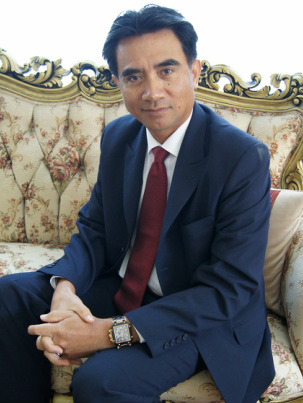
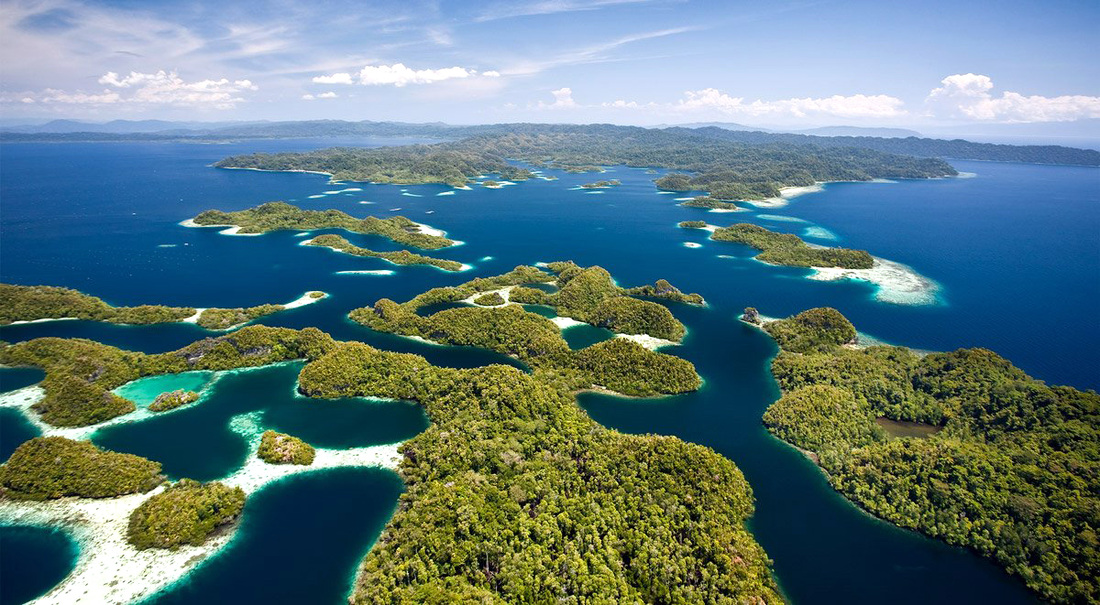
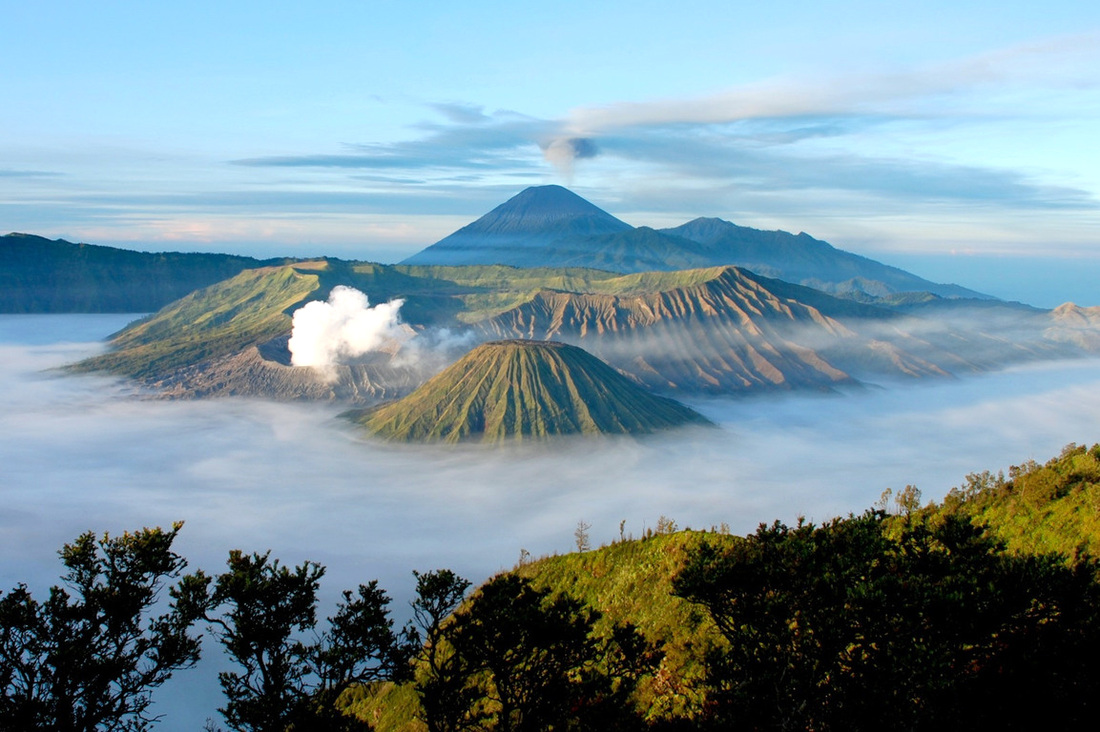
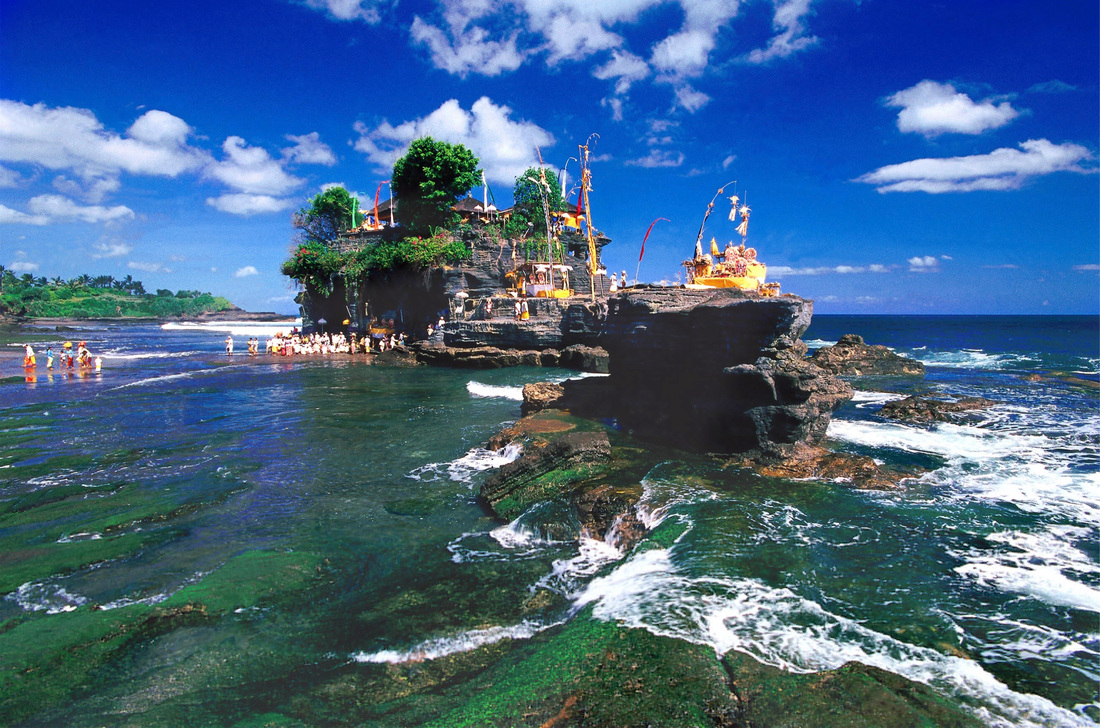
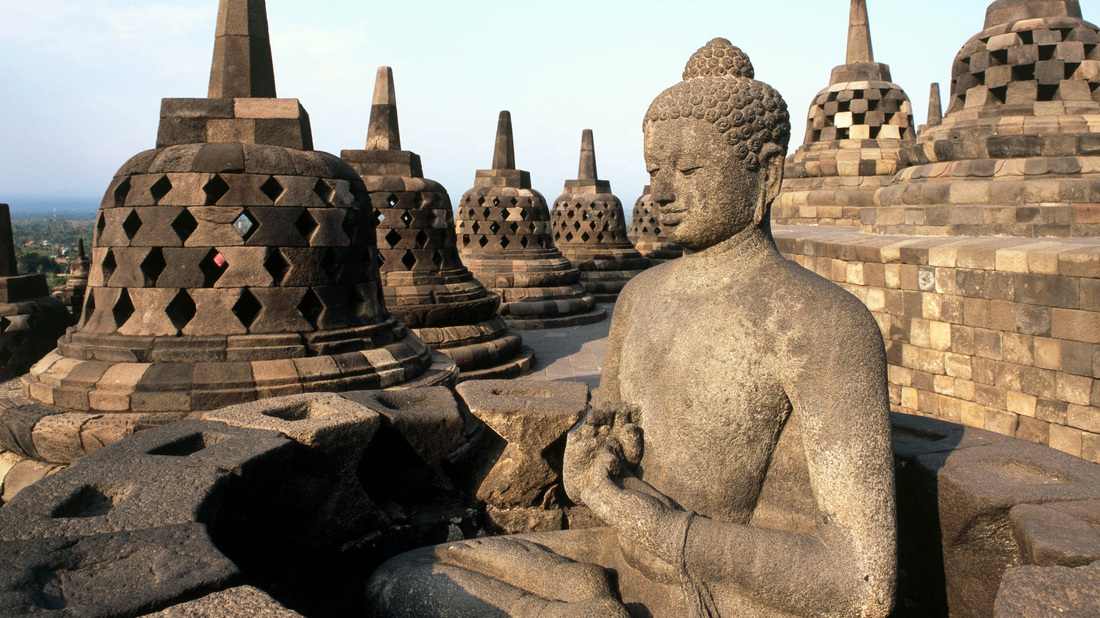
 RSS Feed
RSS Feed
















